
Tiffany Aching 4-Book Collection
¥323.63
This collection includes all four Tiffany Aching novels in Terry Pratchett's beloved and bestselling Discworld series.The Wee Free Men: Armed with only a frying pan and her common sense, young witch-to-be Tiffany Aching must defend her home against the monsters of Fairyland. Luckily she has some very unusual help: the local Nac Mac Feegle—aka the Wee Free Men—a clan of fierce, sheep-stealing, sword-wielding, six-inch-high blue men. Together they must face headless horsemen, ferocious grimhounds, terrifying dreams come true, and ultimately the sinister Queen of the Elves herself. . . .A Hat Full of Sky: Tiffany Aching is ready to begin her apprenticeship in magic. She expects spells and magic—not chores and ill-tempered nanny goats! Surely there must be more to witchcraft than this!What Tiffany doesn't know is that an insidious, disembodied creature is pursuing her. In the end, it will take all of Tiffany's inner strength to save herself ... if it can be done at all.Wintersmith: When the Spirit of Winter takes a fancy to Tiffany Aching, he wants her to stay in his gleaming, frozen world. Forever. It will take the young witch's skill and cunning, as well as help from the legendary Granny Weatherwax and the irrepressible Wee Free Men, to survive until Spring. Because if Tiffany doesn't make it to Spring—Spring won't come.I Shall Wear Midnight: As the witch of the Chalk, Tiffany Aching performs the distinctly unglamorous work of caring for the needy. But someone—or something—is inciting fear, generating dark thoughts and angry murmurs against witches. Tiffany must find the source of unrest and defeat the evil at its root. Aided by the tiny-but-tough Wee Free Men, Tiffany faces a dire challenge, for if she falls, the whole Chalk falls with her. . . .

Racial Order
¥323.73
Proceeding from the bold and provocative claim that there never has been a comprehensive and systematic theory of race, Mustafa Emirbayer and Matthew Desmond set out to reformulate how we think about this most difficult of topics in American life. In The Racial Order, they draw on Bourdieu, Durkheim, and Dewey to present a new theoretical framework for race scholarship. Animated by a deep and reflexive intelligence, the book engages the large and important issues of social theory today and, along the way, offers piercing insights into how race actually works in America. Emirbayer and Desmond set out to examine how the racial order is structured, how it is reproduced and sometimes transformed, and how it penetrates into the innermost reaches of our racialized selves. They also consider how-and toward what end-the racial order might be reconstructed.?In the end, this project is not merely about race; it is a theoretical reconsideration of the fundamental problems of order, agency, power, and social justice. The Racial Order is a challenging work of social theory, institutional and cultural analysis, and normative inquiry.

Dorothy Must Die: The Other Side of the Rainbow Collection
¥327.12
There's a new wicked witch in Oz—and her name is Dorothy. The Wonderful Wizard of Oz meets Kill Bill in this edgy, fast-paced, fantasy-adventure series from New York Times bestselling author Danielle Paige. The first two novels and three novellas are available together here for the first time:Dorothy Must Die: Oz has turned into a savage dystopia under Dorothy's rule—and now a new girl from Kansas must take her down. Amy Gunn been recruited by the Revolutionary Order of the Wicked. Her mission: Remove the Tin Woodman's heart. Steal the Scarecrow's brain. Take the Lion's courage. And—Dorothy must die.The Wicked Will Rise: With the Revolutionary Order of the Wicked scattered across Oz, Amy Gumm is on her own in the twisted fairyland. As she searches the kingdom in the hopes of destroying Dorothy once and for all, Amy realizes that nothing is what it seems in Oz and everyone has their own agenda.This collection also contains the three prequel novellas No Place Like Oz, The Witch Must Burn, and The Wizard Returns.

Four Beastly Kendra Chronicles Collection
¥327.12
A hapless witch, a bad boy turned beast, a beautiful girl and her wicked stepmother…what more could you want in these four modernized fairy tales, in one collection for the first time, by #1 New York Times bestselling author Alex Flinn.Beastly: Kyle was the cutest guy at school—and the most heartless. Kendra's spell turned him into a beast, but can Lindy's love turn him back into a boyAfter winning a VOYA Editor's Choice award and spending over 22 weeks on the New York Times bestseller list, Beastly, a retelling of Beauty and the Beast, became a major feature film starring Vanessa Hudgens, Alex Pettyfer, Mary Kate Olsen, and Neil Patrick Harris.Beastly: Lindy's Diary: This novella lets readers peek into the journal Lindy kept while she was getting to know—and love—her beast.Bewitching: Kendra shares her other schemes that have gone wrong . . . no matter how hard she tries! These tweaked fairy tales take readers all through history and all over the world.Mirrored: In this retelling of Snow White, beautiful Celine must take refuge with her friend Goose and his family since her wicked stepmother, Violet, is on a mission to be the fairest of all and won't let anything—including Celine—get in her way.

Stations in the Field
¥329.62
When we think of sites of animal research that symbolize modernity, the first places that come to mind are grand research institutes in cities and near universities that house the latest in equipment and technologies, not the surroundings of the bird's nest, the octopus's garden in the sea, or the parts of inland lakes in which freshwater plankton reside. Yet during the late nineteenth and early twentieth centuries, a group of zoologists began establishing novel, indeed modern ways of studying nature, propagating what present-day ecologists describe as place-based research.Raf De Bont's Stations in the Field focuses on the early history of biological field stations and the role these played in the rise of zoological place-based research. Beginning in the 1870s, a growing number of biological field stations were founded-first in Europe and later elsewhere around the world-and thousands of zoologists received their training and performed their research at these sites. Through case studies, De Bont examines the material and social context in which field stations arose, the actual research that was produced in these places, the scientific claims that were developed there, and the rhetorical strategies that were deployed to convince others that these claims made sense. From the life of parasitic invertebrates in northern France and freshwater plankton in Schleswig-Holstein, to migratory birds in East Prussia and pest insects in Belgium, De Bont's book is fascinating tour through the history of studying nature in nature.

Posthumous Love
¥329.62
For Dante and Petrarch, posthumous love was a powerful conviction. Like many of their contemporaries, both poets envisioned their encounters with their beloved in heaven-Dante with Beatrice, Petrarch with Laura. But as Ramie Targoff reveals in this elegant study, English love poetry of the Renaissance brought a startling reversal of this tradition: human love became definitively mortal. Exploring the boundaries that Renaissance English poets drew between earthly and heavenly existence, Targoff seeks to understand this shift and its consequences for English poetry.?Targoff shows that medieval notions of the somewhat flexible boundaries between love in this world and in the next were hardened by Protestant reformers, who envisioned a total break between the two. Tracing the narrative of this rupture, she focuses on central episodes in poetic history in which poets developed rich and compelling compensations for the lack of posthumous love-from Thomas Wyatt's translations of Petrarch's love sonnets and the Elizabethan sonnet series of Shakespeare and Spencer to the?carpe diem?poems of the seventeenth century. Targoff's centerpiece is?Romeo and Juliet, where she considers how Shakespeare's reworking of the Italian story stripped away any expectation that the doomed teenagers would reunite in heaven. Casting new light on these familiar works of poetry and drama, this book ultimately demonstrates that the negation of posthumous love brought forth a new mode of poetics that derived its emotional and aesthetic power from its insistence upon love's mortal limits.
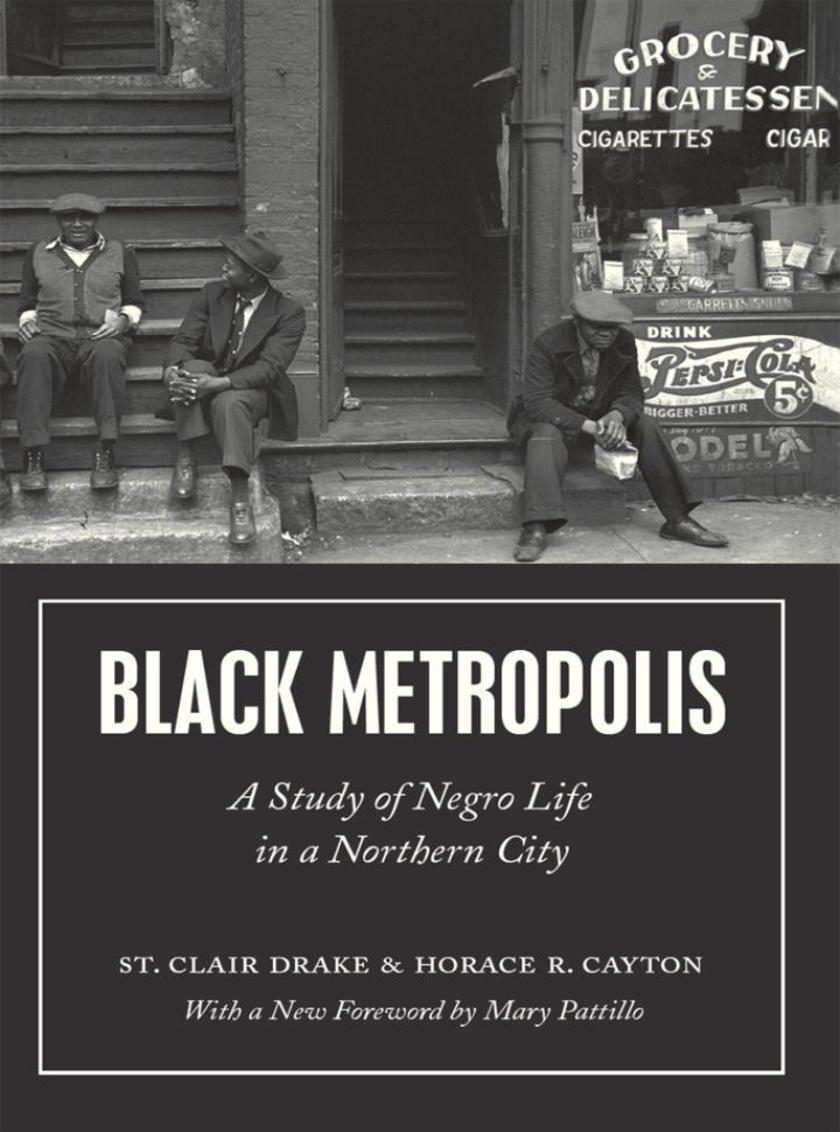
Black Metropolis
¥329.62
Ground-breaking when first published in 1945, Black Metropolis remains a landmark study of race and urban life. Few studies since have been able to match its scope and magnitude, offering one of the most comprehensive looks at black life in America. Based on research conducted by Works Progress Administration field workers, it is a sweeping historical and sociological account of the people of Chicago's South Side from the 1840s through the 1930s. Its findings offer a comprehensive analysis of black migration, settlement, community structure, and black-white race relations in the first half of the twentieth century. It offers a dizzying and dynamic world filled with captivating people and startling revelations.A new foreword from sociologist Mary Pattillo places the study in modern context, updating the story with the current state of black communities in Chicago and the larger United States and exploring what this means for the future. As the country continues to struggle with race and our treatment of black lives, Black Metropolis continues to be a powerful contribution to the conversation.
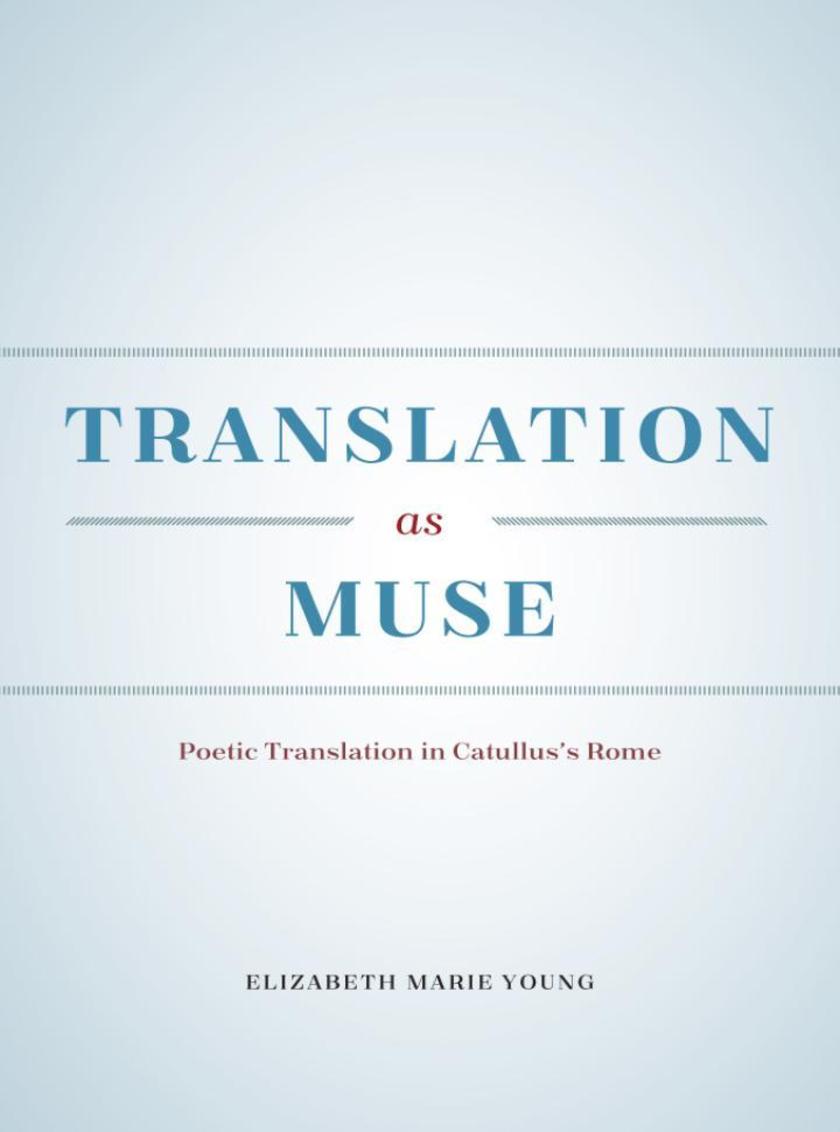
Translation as Muse
¥329.62
Poetry is often said to resist translation, its integration of form and meaning rendering even the best translations problematic. Elizabeth Marie Young disagrees, and with?Translation as Muse, she uses the work of the celebrated Roman poet Catullus to mount a powerful argument that translation can be an engine of poetic invention.Catullus has long been admired as a poet, but his efforts as a translator have been largely ignored. Young reveals how essential translation is to his work: many poems by Catullus that we tend to label as lyric originals were in fact shaped by Roman translation practices entirely different from our own. By rereading Catullus through the lens of translation, Young exposes new layers of ingenuity in Latin poetry even as she illuminates the idiosyncrasies of Roman translation practice, reconfigures our understanding of translation history, and questions basic assumptions about lyric poetry itself.
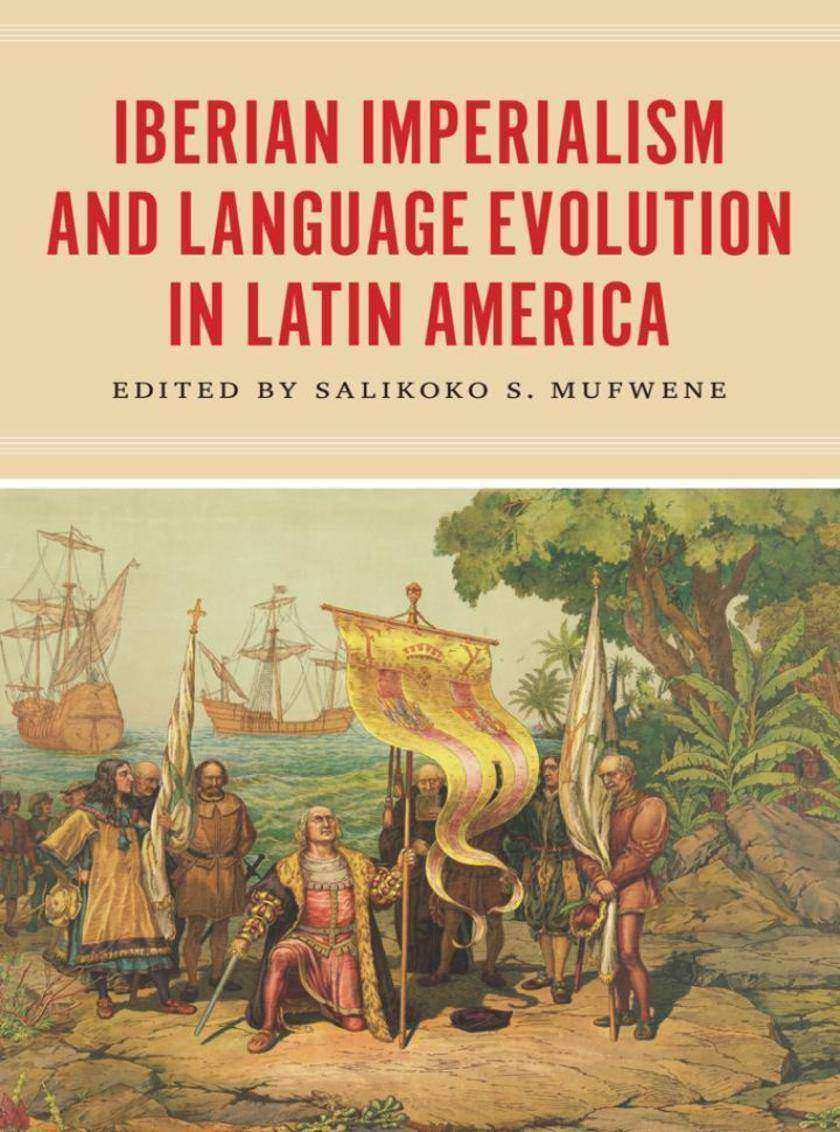
Iberian Imperialism and Language Evolution in Latin America
¥329.62
As rich as the development of the Spanish and Portuguese languages has been in Latin America, no single book has attempted to chart their complex history. Gathering essays by sociohistorical linguists working across the region, Salikoko S. Mufwene does just that in this book. Exploring the many different contact points between Iberian colonialism and indigenous cultures, the contributors identify the crucial parameters of language evolution that have led to today's state of linguistic diversity in Latin America.?The essays approach language development through an ecological lens, exploring the effects of politics, economics, cultural contact, and natural resources on the indigenization of Spanish and Portuguese in a variety of local settings. They show how languages adapt to new environments, peoples, and practices, and the ramifications of this for the spread of colonial languages, the loss or survival of indigenous ones, and the way hybrid vernaculars get situated in larger political and cultural forces. The result is a sophisticated look at language as a natural phenomenon, one that meets a host of influences with remarkable plasticity. ?
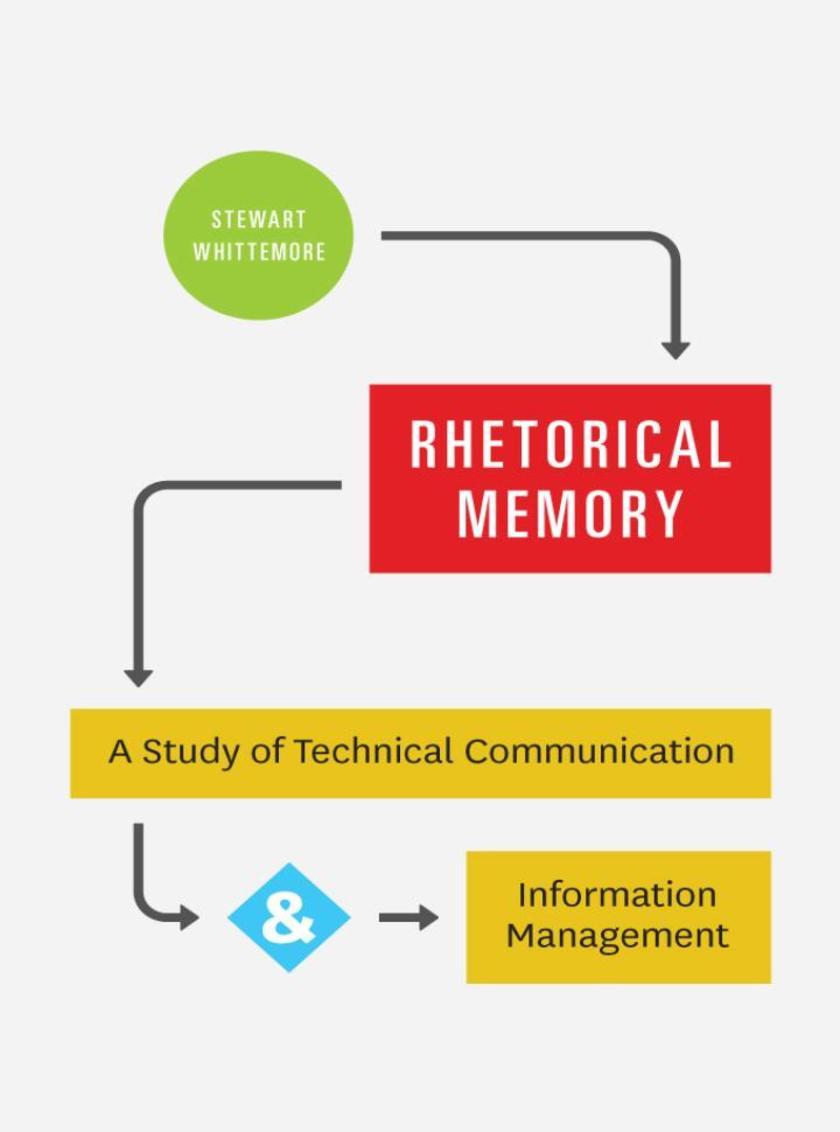
Rhetorical Memory
¥329.62
Institutions have regimes-policies that typically come from the top down and are meant to align the efforts of workers with the goals and mission of an institution. Institutions also have practices-day-to-day behaviors performed by individual workers attempting to interpret the institution's missives. Taken as a whole, these form a company's memory regime, and they have a significant effect on how employees analyze, mix, translate, sort, filter, and repurpose everyday information in order to meet the demands of their jobs, their customers, their colleagues, and themselves.In Rhetorical Memory, Stewart Whittemore demonstrates that strategies we use to manage information-techniques often acquired through trial and error, rarely studied, and generally invisible to us-are as important to our success as the end products of our work. First, he situates information management within the larger field of rhetoric, showing that both are tied to purpose, audience, and situation. He then dives into an engaging and tightly focused workplace study, presenting three cases from a team of technical communicators making use of organizational memory during their everyday work. By examining which techniques succeed and which fail, Whittemore illuminates the challenges faced by technical communicators. He concludes with a number of practical strategies to better organize information, that will help employees, managers, and anyone else suffering from information overload.
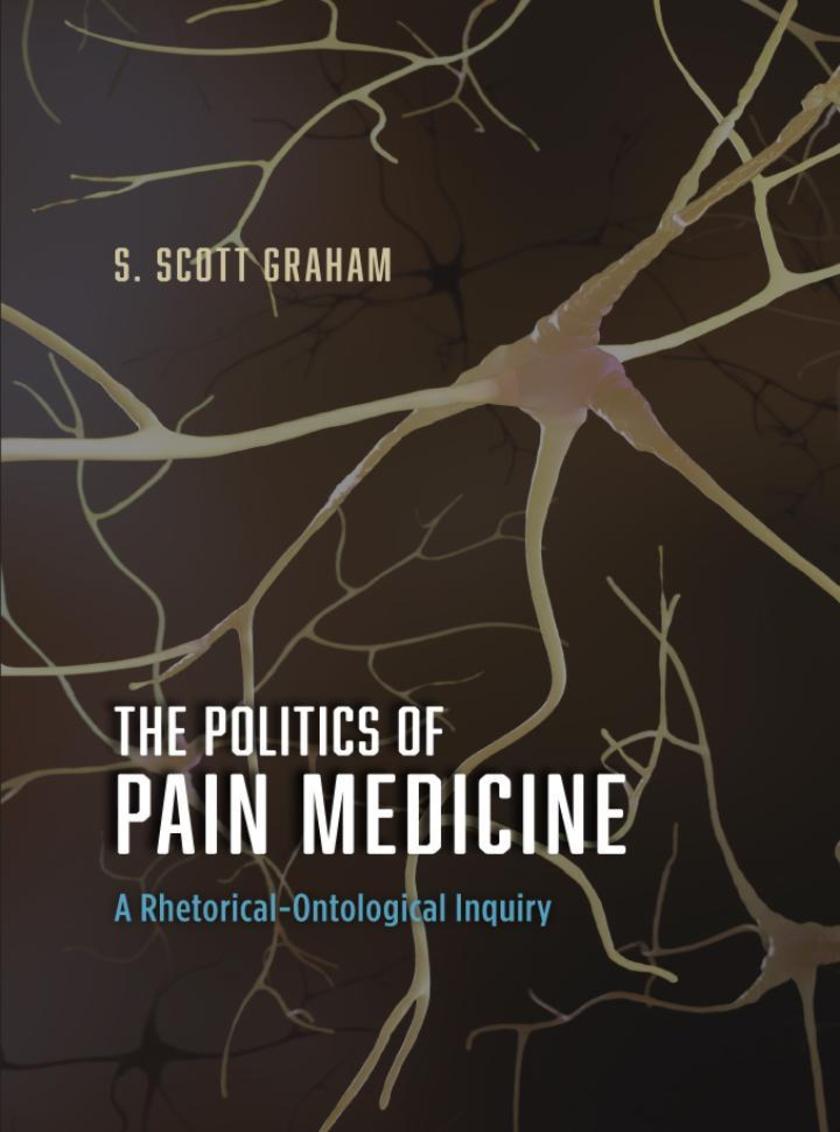
Politics of Pain Medicine
¥329.62
Chronic pain is a medical mystery, debilitating to patients and a source of frustration for practitioners. It often eludes both cause and cure and serves as a reminder of how much further we have to go in unlocking the secrets of the body. A new field of pain medicine has evolved from this landscape, one that intersects with dozens of disciplines and subspecialties ranging from psychology and physiology to anesthesia and chiropractic medicine. Over the past three decades, researchers, policy makers, and practitioners have struggled to define this complex and often contentious field as they work to establish standards while navigating some of the most challenging philosophical issues of Western science.In The Politics of Pain Medicine: A Rhetorical-Ontological Inquiry, S. Scott Graham offers a rich and detailed exploration of the medical rhetoric surrounding pain medicine. Graham chronicles the work of interdisciplinary pain management specialists to found a new science of pain and a new approach to pain medicine grounded in a more comprehensive biospychosocial model. His insightful analysis demonstrates how these materials ultimately shape the healthcare community's understanding of what pain medicine is, how the medicine should be practiced and regulated, and how practitioner-patient relationships are best managed. It is a fascinating, novel examination of one of the most vexing issues in contemporary medicine.

Second-Best Justice
¥329.62
It's long been known that Japanese file fewer lawsuits per capita than Americans do. Yet explanations for the difference have tended to be partial and unconvincing, ranging from circular arguments about Japanese culture to suggestions that the slow-moving Japanese court system acts as a deterrent.With?Second-Best Justice, J. Mark Ramseyer offers a more compelling, better-grounded explanation: the low rate of lawsuits in Japan results not from distrust of a dysfunctional system but from trust in a system that works-that sorts and resolves disputes in such an overwhelmingly predictable pattern that opposing parties rarely find it worthwhile to push their dispute to trial. Using evidence from tort claims across many domains, Ramseyer reveals a court system designed not to find perfect justice, but to "e;make do"e;-to adopt strategies that are mostly right and that thereby resolve disputes quickly and economically.An eye-opening study of comparative law,?Second-Best Justice?will force a wholesale rethinking of the differences among alternative legal systems and their broader consequences for social welfare.?
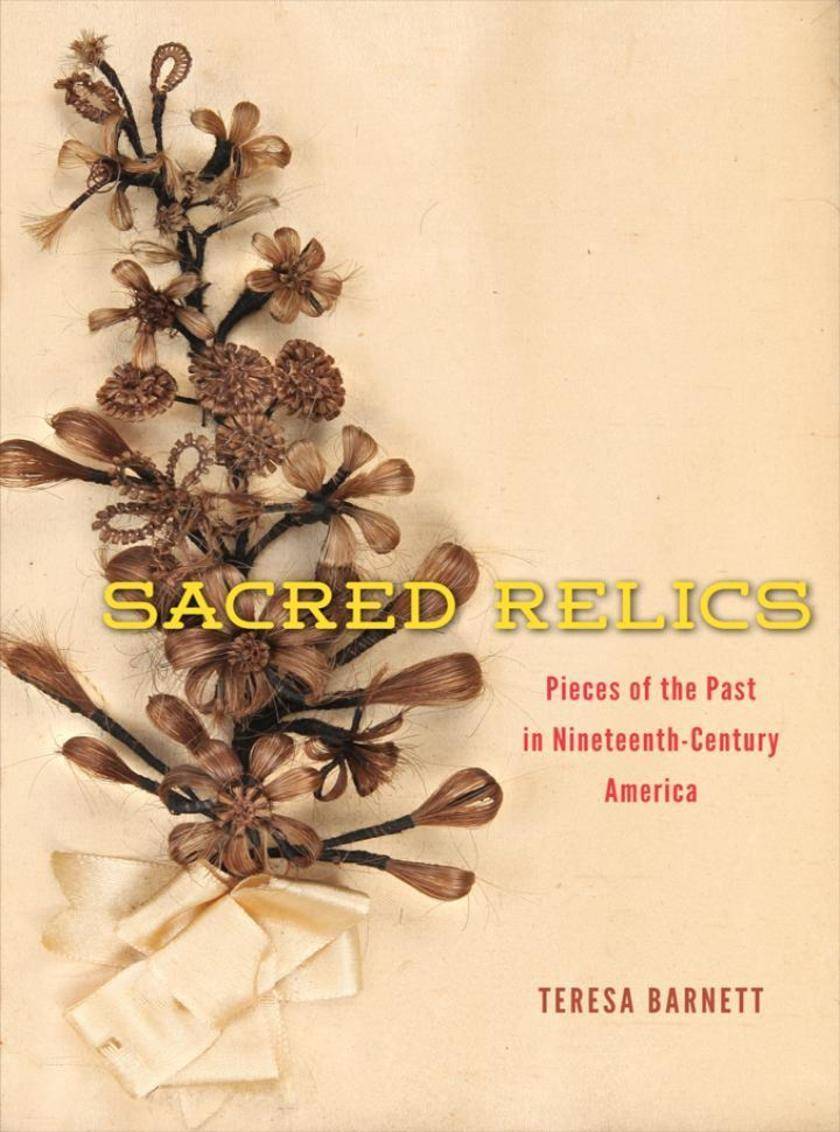
Sacred Relics
¥329.62
A piece of Plymouth Rock. A lock of George Washington's hair. Wood from the cabin where Abraham Lincoln was born. Various bits and pieces of the past-often called "e;association items"e;-may appear to be eccentric odds and ends, but they are valued because of their connections to prominent people and events in American history. Kept in museum collections large and small across the United States, such objects are the touchstones of our popular engagement with history.In Sacred Relics, Teresa Barnett explores the history of private collections of items like these, illuminating how Americans view the past. She traces the relic-collecting tradition back to eighteenth-century England, then on to articles belonging to the founding fathers and through the mass collecting of artifacts that followed the Civil War. Ultimately, Barnett shows how we can trace our own historical collecting from the nineteenth century's assemblages of the material possessions of great men and women.
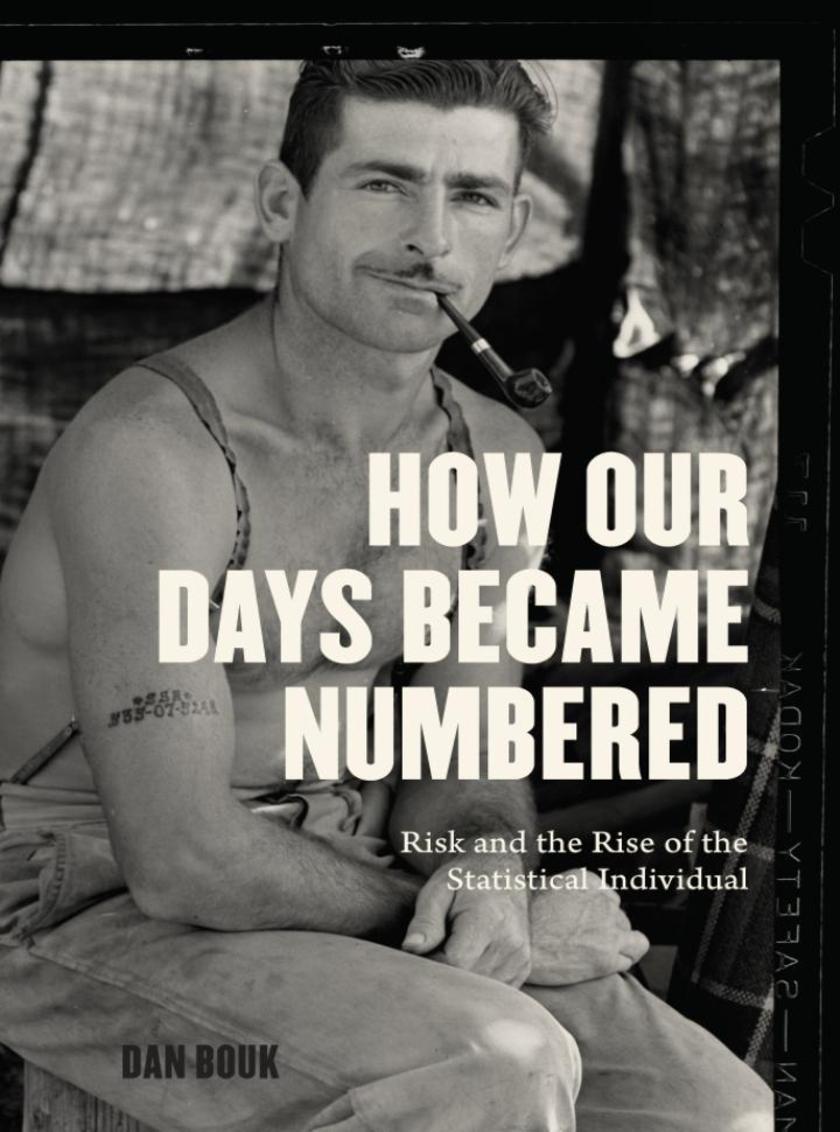
How Our Days Became Numbered
¥329.62
Long before the age of "e;Big Data"e; or the rise of today's "e;self-quantifiers,"e; American capitalism embraced "e;risk"e;--and proceeded to number our days. Life insurers led the way, developing numerical practices for measuring individuals and groups, predicting their fates, and intervening in their futures. Emanating from the gilded boardrooms of Lower Manhattan and making their way into drawing rooms and tenement apartments across the nation, these practices soon came to change the futures they purported to divine.How Our Days Became Numbered tells a story of corporate culture remaking American culture--a story of intellectuals and professionals in and around insurance companies who reimagined Americans' lives through numbers and taught ordinary Americans to do the same. Making individuals statistical did not happen easily. Legislative battles raged over the propriety of discriminating by race or of smoothing away the effects of capitalism's fluctuations on individuals. Meanwhile, debates within companies set doctors against actuaries and agents, resulting in elaborate, secretive systems of surveillance and calculation.Dan Bouk reveals how, in a little over half a century, insurers laid the groundwork for the much-quantified, risk-infused world that we live in today. To understand how the financial world shapes modern bodies, how risk assessments can perpetuate inequalities of race or sex, and how the quantification and claims of risk on each of us continue to grow, we must take seriously the history of those who view our lives as a series of probabilities to be managed.

John Grote, Cambridge University and the Development of Victorian Thought
¥333.44
John Grote struggled to construct an intelligible account of philosophy at a time when radical change and sectarian conflict made understanding and clarity a rarity. This book answers three questions:* How did John Grote develop and contribute to modern Cambridge and British philosophy?* What is the significance of these contributions to modern philosophy in general and British Idealism and language philosophy in particular?* How were his ideas and his idealism incorporated into the modern philosophical tradition?Grote influenced his contemporaries, such as his students Henry Sidgwick and John Venn, in both style and content; he forged a brilliantly original philosophy of knowledge, ethics, politics and language, from a synthesis of the major British and European philosophies of his day; his social and political theory provide the origins of the 'new liberal' ideas later to reach their zenith in the writings of Green, Sidgwick, and Collingwood; he founded the 'Cambridge style' associated with Moore, Russell, Broad, McTaggart and Wittgenstein; and he was also a major influence on Oakeshott.

Mastering JavaScript Functional Programming
¥334.25
Master Functional Programming techniques with this comprehensive guide for writing cleaner, safer, high-performing JavaScript codes About This Book Become proficient and skilled with Functional Programming in JavaScript to solve real-world development problems Successfully apply Functional Programming concepts and techniques to everyday JavaScript programming Bring modularity, reusability, testability, and performance to your web apps Who This Book Is For If you are a JavaScript developer and want to apply functional programming techniques, then this book is for you. Only a basic knowledge of the concepts of functional programming is required for this book. What You Will Learn Create more reliable code with closures and immutable data Convert existing methods into pure functions, and loops into recursive methods Develop more powerful applications with currying and function composition Separate the logic of your system from implementation details Implement composition and chaining techniques to simplify coding Use functional programming techniques where it makes the most sense In Detail Functional programming is a programming paradigm for developing software using functions. Learning to use functional programming is a good way to write more concise code, with greater concurrency and performance. The JavaScript language is particularly suited to functional programming. This book provides comprehensive coverage of the major topics in functional programming with JavaScript to produce shorter, clearer, and testable programs. You'll delve into functional programming; including writing and testing pure functions, reducing side-effects, and other features to make your applications functional in nature. Specifically, we'll explore techniques to simplify coding, apply recursion for loopless coding, learn ways to achieve immutability, implement design patterns, and work with data types. By the end of this book, you'll have developed the JavaScript skills you need to program functional applications with confidence. Style and approach This book takes an easy-to-follow, step-by-step tutorial approach. You will make the most of JavaScript programming with a focus on the progression of functional programming techniques, styles, and detailed information about JavaScript libraries.

Vampire Diaries: The First Bite 4-Book Collection
¥348.93
Sink your teeth into the Vampire Diaries! This collection includes the first four can't-miss volumes from L. J. Smith.The Vampire Diaries: The Awakening: A deadly love triangle:Elena: beautiful and popular, the girl who can have any guy she wantsStefan: brooding and mysterious, desperately trying to resist his desire for Elena . . . for her own good.Damon: sexy, dangerous, and driven by an urge for revenge against Stefan, the brother who betrayed himElena finds herself drawn to both brothers . . . who will she choose?The Vampire Diaries: The Struggle: Torn between two vampire brothers:Damon: determined to make Elena his, he'd kill his own brother to possess herStefan: desperate for the power to destroy Damon, and protect Elena, he gives in to his thirst for human bloodElena: the girl who can have anyone finds herself in the middle of a love triangle . . . one that might turn deadlyThe Vampire Diaries: The Fury: Love can kill:Elena: with Damon at her side, and wild with her craving for blood, the changed Elena struggles to control her desiresDamon: his hunger for the golden girl wars with his hunger for revenge against StefanStefan: tormented after losing Elena, he will do anything to get her back. Even if it means becoming what he once despised. . . .Getting what they want may come at a deadly cost.The Vampire Diaries: Dark Reunion: The Final Conflict...The Last Deadly Kiss:Elena: now she rises from the dead to recreate the powerful vampire trioStefan: summoned by Elena, he keeps a promise to her and fights the most terrifying evil he's ever facedDamon: joining the brother he once called enemy, Damon battles this new horror with strength, cunning, and deadly charm.
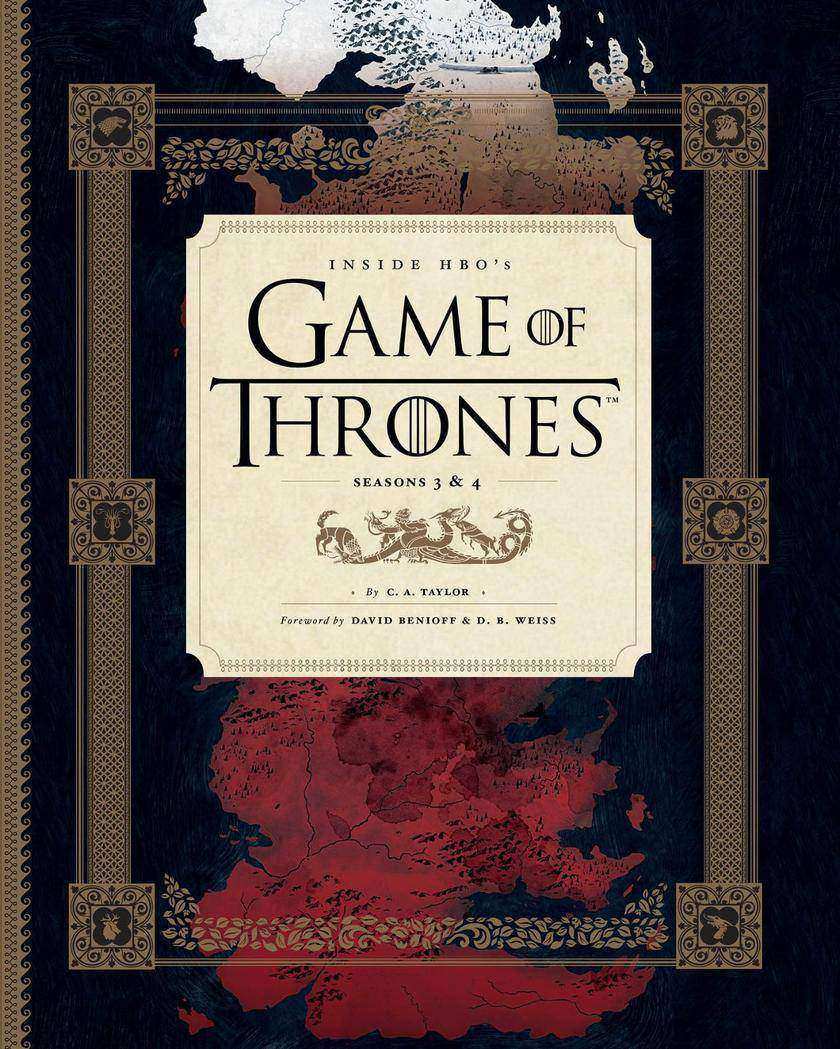
Inside HBO's Game of Thrones - Seasons 3 & 4
¥353.06
Each episode of HBO's Game of Thrones draws millions of obsessed viewers who revel in the shocking plot twists, award-winning performances, and gorgeously rendered fantasy world. This official companion book reveals what it takes to translate George R. R. Martin's bestselling series into a wildly popular television series. With unprecedented scope and depth, it showcases hundreds of unpublished set photos, visual effects art, and production and costume designs, plus insights from key actors and crew members that capture the best scripted and unscripted moments from Seasons 3 and 4. Required reading for the die-hard fan, and the perfect way to catch up on the series before the much-anticipated Season 5 debuts, this special volume offers an exclusive window into cable's highest-rated show.2014 Home Box Office, Inc. All rights reserved. Game of Thrones and related trademarks are the property of Home Box Office, Inc.
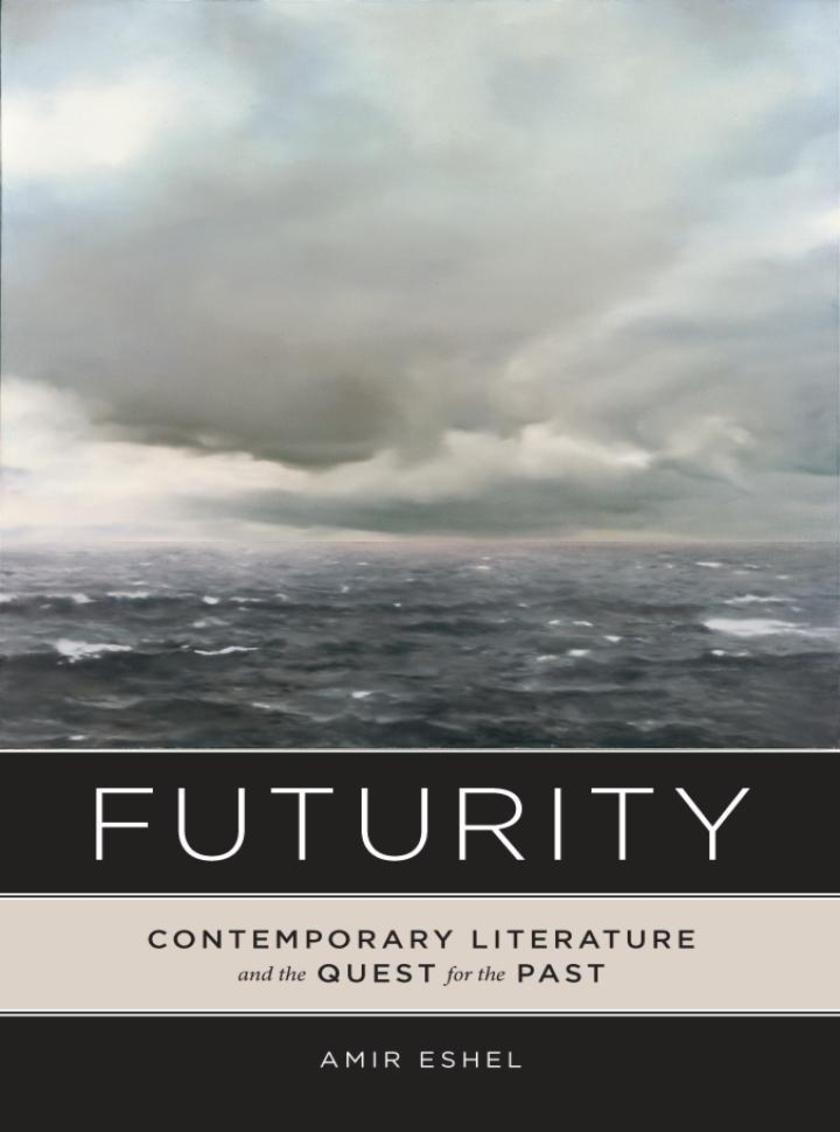
Futurity
¥353.16
When looking at how trauma is represented in literature and the arts, we tend to focus on the weight of the past. In this book, Amir Eshel suggests that this retrospective gaze has trapped us in a search for reason in the madness of the twentieth century's catastrophes at the expense of literature's prospective vision. Considering several key literary works, Eshel argues in Futurity that by grappling with watershed events of modernity, these works display a future-centric engagement with the past that opens up the present to new political, cultural, and ethical possibilities-what he calls futurity.?Bringing together postwar German, Israeli, and Anglo-American literature, Eshel traces a shared trajectory of futurity in world literature. He begins by examining German works of fiction and the debates they spurred over the future character of Germany's public sphere. Turning to literary works by Jewish-Israeli writers as they revisit Israel's political birth, he shows how these stories inspired a powerful reconsideration of Israel's identity. Eshel then discusses post-1989 literature-from Ian McEwan's Black Dogs to J. M. Coetzee's Diary of a Bad Year-revealing how these books turn to events like World War II and the Iraq War not simply to make sense of the past but to contemplate the political and intellectual horizon that emerged after 1989. Bringing to light how reflections on the past create tools for the future, Futurity reminds us of the numerous possibilities literature holds for grappling with the challenges of both today and tomorrow.

Doctors and Demonstrators
¥353.16
Since Roe v. Wade, abortion has continued to be a divisive political issue in the United States. In contrast, it has remained primarily a medical issue in Britain and Canada despite the countries' shared heritage. Doctors and Demonstrators looks beyond simplistic cultural or religious explanations to find out why abortion politics and policies differ so dramatically in these otherwise similar countries.?Drew Halfmann argues that political institutions are the key. In the United States, federalism, judicial review, and a private health care system contributed to the public definition of abortion as an individual right rather than a medical necessity. Meanwhile, Halfmann explains, the porous structure of American political parties gave pro-choice and pro-life groups the opportunity to move the issue onto the political agenda. A groundbreaking study of the complex legal and political factors behind the evolution of abortion policy, Doctors and Demonstrators will be vital for anyone trying to understand this contentious issue.

Enigma of the Aerofoil
¥353.16
Why do aircraft flyHow do their wings support themIn the early years of aviation, there was an intense dispute between British and German experts over the question of why and how an aircraft wing provides lift. The British, under the leadership of the great Cambridge mathematical physicist Lord Rayleigh, produced highly elaborate investigations of the nature of discontinuous flow, while the Germans, following Ludwig Prandtl in Gottingen, relied on the tradition called "e;technical mechanics"e; to explain the flow of air around a wing. Much of the basis of modern aerodynamics emerged from this remarkable episode, yet it has never been subject to a detailed historical and sociological analysis.?In The Enigma of the Aerofoil, David Bloor probes a neglected aspect of this important period in the history of aviation. Bloor draws upon papers by the participants-their restricted technical reports, meeting minutes, and personal correspondence, much of which has never before been published-and reveals the impact that the divergent mathematical traditions of Cambridge and Gttingen had on this great debate. Bloor also addresses why the British, even after discovering the failings of their own theory, remained resistant to the German circulation theory for more than a decade. The result is essential reading for anyone studying the history, philosophy, or sociology of science or technology-and for all those intrigued by flight.




 购物车
购物车 个人中心
个人中心



